Academic success of virtual charter schools largely unknown
Academic success of virtual charter schools being questioned
Academic success of virtual charter schools being questioned
MILWAUKEE (WITI) -- There's no doubt education in Wisconsin isn't what it used to be. As technology has changed, so have our classrooms. And for about 7,000 Wisconsin students -- they never step foot in one.
They are "virtual" learners. Kids who have enrolled in one of 28 online virtual charter schools. But how much they are learning is still very unclear, and state data on student achievement doesn't shine much of a light on the issue.
Cicely Vance lives in the Milwaukee Public School District. But she decided to enroll both of her daughters at Wisconsin Virtual Learning, one of the state's oldest online schools. Her girls "attend" school every day from the comfort of their kitchen.
"Trying to find my oldest daughter a middle school to go to was an issue," Vance says. "I felt like MPS was failing me."
She says she considered homeschooling, but felt overwhelmed. Virtual school seemed like the best alternative.
"They would still be home with me but I wouldn't have to come up with the curriculums, which would make it easier," Vance recalls.
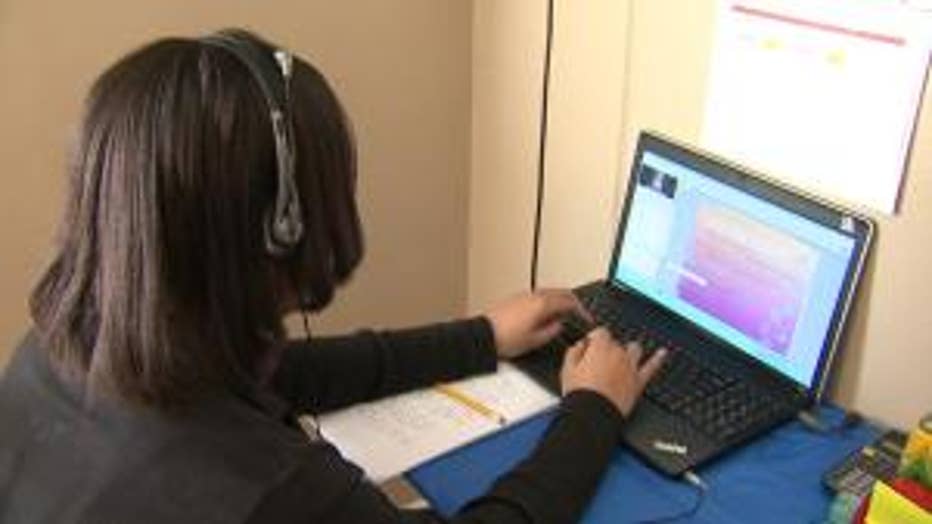
While the girls work on the computer, she runs a daycare just down the hall. Their school pays for laptops, printers, and an abundance of school supplies.
"I think some people think when you're child is at home learning that they're not doing anything that they're not learning, but I think it's what you put into it," Vance says.
And while she might be right, you wouldn't know it by looking at the data.
"I think the outcomes have been, at best, poor," says State Representative Sondy Pope.
She says she's concerned that virtual schools are allowing kids to fall further through the cracks.
The Department of Public Instruction is supposed to give virtual charter schools report cards, just like it gives regular schools. But this year, only 8 out of 28 virtual schools were evaluated. DPI says many were too small to be evaluated and others haven't been around long enough.
In order to get a report card, the school must exist for at least three years. But even schools meeting that criteria didn't do so well. Half of the schools receiving report cards failed to meet academic expectations for the 2012-2013 school year.
"We have discovered we aren't doing very well in virtual schools and we've committed a lot of money and a lot of students to this program and the results just aren't there," Pope says.
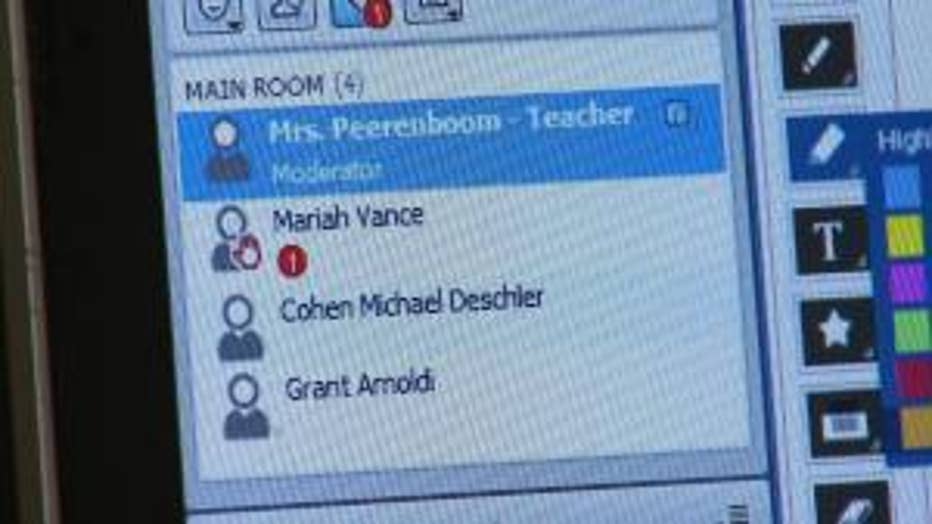
In 2010, the state's Legislative Audit Bureau studied Wisconsin's online schools. The 300-page report concluded more data was needed to figure out whether virtual schools were making the grade.
It called for a state-wide analysis of virtual charter schools. But nearly four years later that still hasn't happened. Not much is known about how Wisconsin's virtual charter schools are performing. State test scores show virtual students are typically better at reading but worse at math than their brick and mortar counterparts. Critics of virtual schools say much more data is needed, especially since there's so much money at stake.
"It is a money maker. I mean it's a cash cow," Pope says.
Virtual school get most of their money from open enrollment payments. For the 2013-2014 school year, each student comes with $6,635. During the 2007-2008 school year, the last time the state took a hard look at the revenues, virtual schools got $1.4 million in state aid.
"We really need a more accurate accountability report for virtual schools," says Rick Nettesheim, the principal at Eacheive Academy in Waukesha. His school has more than a thousand students.
"We have hundreds of students that it's working great - but then we also have a few other students where I talk to the parent and tell me their student is working and I say did you know it's been three weeks since they submitted an assignment?"
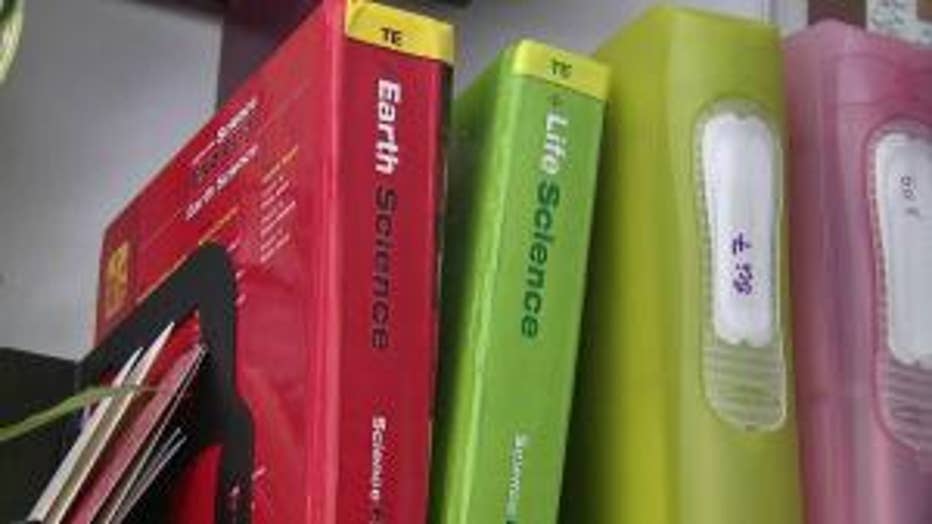
He agrees the state needs a better way to monitor the academic success of virtual schools. One reason? He doesn't think the report cards are fair. For example, his school went from being one of the best to one of the worst in a single year, which he attributes to inaccuracies in the report card.
He says comparing regular schools to virtual schools is like comparing apples to oranges. For example, he says, the state report card keeps track of attendance rates. But virtual schools don't always take attendance because they aren't required to. Sometimes kids aren't even required to log on for class.
We judge success based on if this student submitting work, is it quality work, are they actively participating," Nettesheim says. He says dropout rates and graduation rates are also unfairly impacting the reputations of online schools.
Many students come to virtual schools from the public school system as a last resort.
Nettesheim says one way to measure how well kids are doing in online schools is to keep track of how many get kicked back to their home districts for "non-participation" -- in other words, for not cutting it in the virtual world.
"It happens unfortunately more than you would think," he says.
"We send them back to their resident school because this obviously isn't working out."
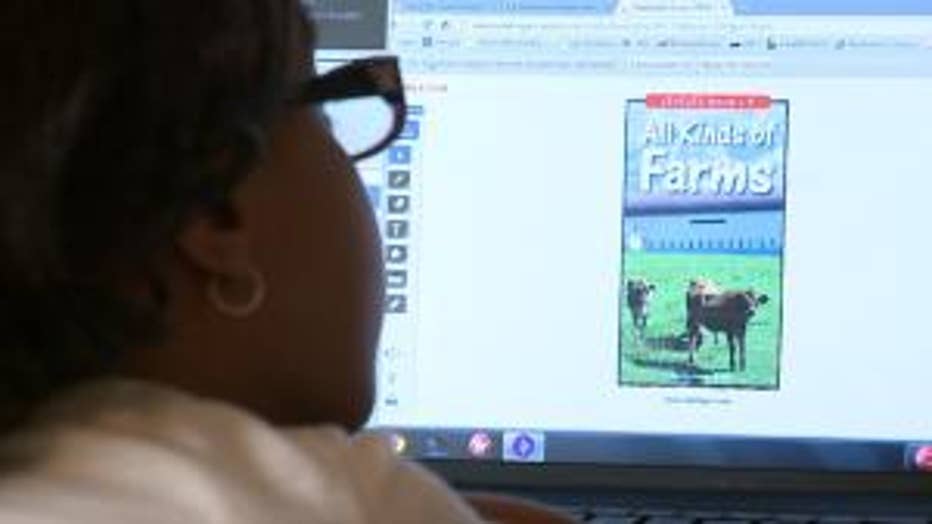
Last year, 508 students were kicked out of virtual schools, or about 7% of the total online student population. FOX6 compiled the data from individual schools because it's not something the state keeps tabs on.
The problem is, nobody knows where these students end up once they are forced out.
"We simply don`t know and I think that's an atrocity," Pope says.
Republic state senator Luther Olsen, agrees.
"You can send them back, but paperwork and stuff doesn't get back to their home school or they move or something else and they're sort of lost," he says.
"We've got to zero that in."
Olsen says he's trying to do just that by proposing a new bill that would require more data gathering for online schools. He thinks there's a lot of potential for online schools even if the report cards don't yet reflect that.
"If you look at the next generation of kids they are pretty much in tune with technology," he
He's pushing a bill that calls for a new state report card, one he says will measure how students are doing and how much progress the school has made over time.
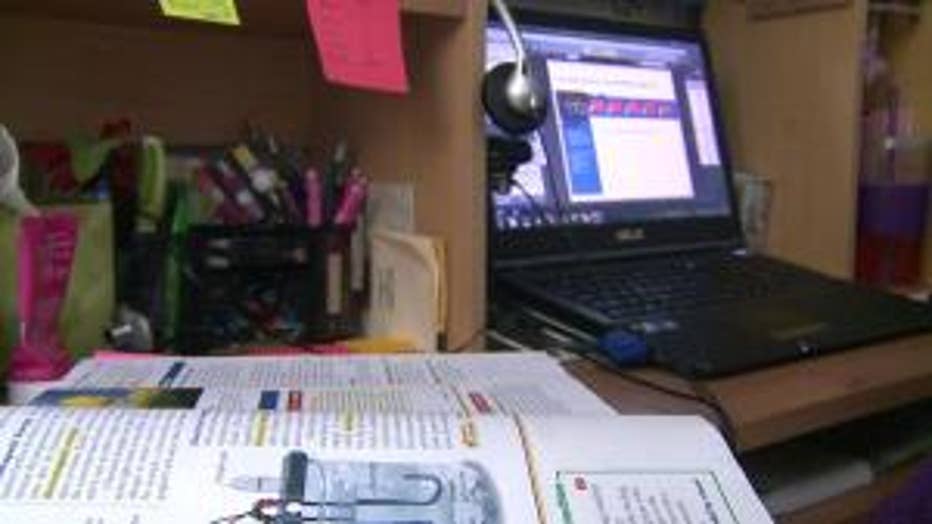
"If you start two grades behind and we move you a grade and a half in a year that's pretty good. In fact, that's great. But we don't measure that and we will."
One thing is for sure -- virtual schools are here to stay. Enrollment is skyrocketing. But it may be too early to know just how successful they'll end up being.
"It takes a lot of discipline, a lot of diligence and a lot of hard work, and if you're not willing to do that then I don't recommend virtual learning," Vance says.

